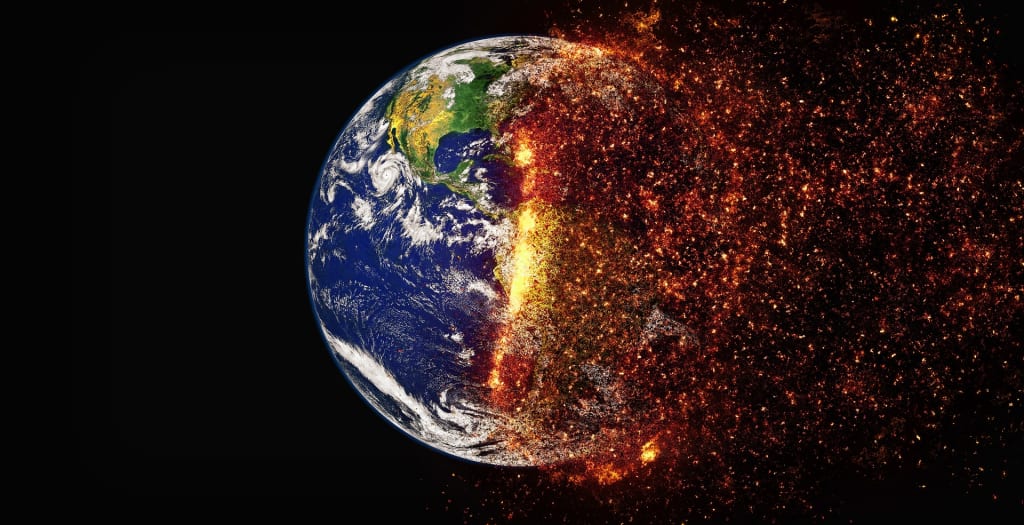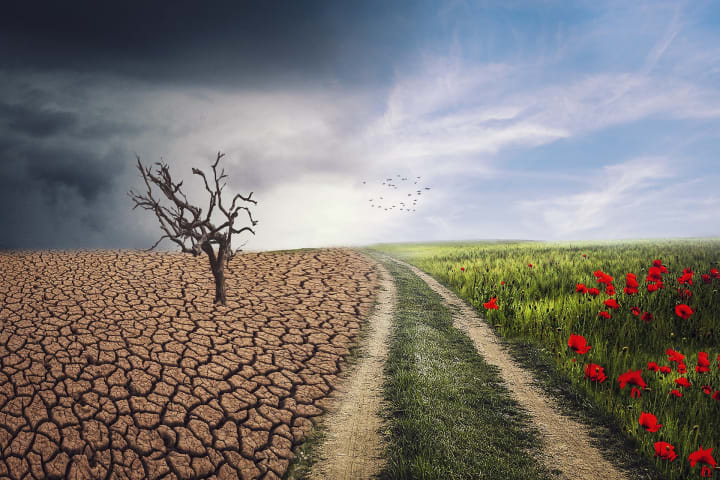
Introduction
Climate change poses an unprecedented threat to our planet and its inhabitants. The scientific consensus is clear: human activities, particularly the burning of fossil fuels and deforestation, are altering Earth's climate at an alarming rate. The consequences of inaction are dire and include rising global temperatures, extreme weather events, biodiversity loss, and resource scarcity. The need for global action to mitigate and adapt to climate change has never been more urgent. This article explores the pressing challenges we face and emphasizes the importance of collective efforts to address this global crisis.

I. The Science of Climate Change
Climate change is primarily driven by the accumulation of greenhouse gases (GHGs) in the atmosphere, such as carbon dioxide (CO2), methane (CH4), and nitrous oxide (N2O). These gases trap heat and lead to the greenhouse effect, resulting in a rise in global temperatures. The Intergovernmental Panel on Climate Change (IPCC) warns that without immediate action to reduce GHG emissions, we are on a path towards catastrophic warming above the 1.5-degree Celsius threshold.
II. Impacts of Climate Change
The consequences of climate change are already being felt worldwide. Rising sea levels threaten coastal communities and low-lying islands, leading to increased flooding and displacement. Extreme weather events, such as hurricanes, droughts, and wildfires, have become more frequent and intense. Changes in precipitation patterns affect agriculture, leading to crop failures and food insecurity. Ecosystems are under stress, with coral reefs dying, species going extinct, and natural habitats being destroyed. The impacts are not confined to the environment; they also have severe socioeconomic repercussions.
III. The Need for Global Cooperation
Addressing climate change requires global cooperation and coordinated action. No single country can solve this crisis alone. The Paris Agreement, adopted by nearly every country in 2015, outlines a framework for collective efforts to combat climate change. It aims to limit global warming well below 2 degrees Celsius and pursue efforts to limit it to 1.5 degrees Celsius. However, meeting these goals necessitates stronger commitments and accelerated action from all nations.
IV. Transitioning to a Low-Carbon Economy
The transition to a low-carbon economy is critical in mitigating climate change. This involves shifting away from fossil fuels towards renewable energy sources like solar, wind, and hydropower. It also entails improving energy efficiency, promoting sustainable transportation, and adopting cleaner industrial practices. Governments, businesses, and individuals must invest in renewable technologies and incentivize their adoption to reduce emissions and decouple economic growth from carbon-intensive activities.
V. Adapting to Climate Change
In addition to mitigation efforts, we must adapt to the changes that are already occurring. This includes investing in resilient infrastructure, enhancing early warning systems for extreme weather events, implementing sustainable land and water management practices, and supporting vulnerable communities. Developing countries, which are disproportionately affected by climate change, require assistance and financial resources to adapt effectively.
VI. Overcoming Challenges and Overarching Benefits
Addressing climate change presents challenges, including political will, economic costs, and technological barriers. However, the benefits of taking action far outweigh these challenges. Transitioning to a low-carbon economy can create millions of green jobs, stimulate innovation, improve public health by reducing pollution, and enhance energy security. Moreover, climate action presents an opportunity to foster global solidarity and protect the well-being of future generations.
Conclusion
Climate change is a global crisis that demands immediate and coordinated action from all nations. We cannot afford to delay or underestimate the urgency of this challenge. By reducing greenhouse gas emissions, transitioning to a low-carbon economy, and prioritizing adaptation, we can mitigate the worst impacts of climate change and build a more sustainable future. The time for global cooperation, innovation, and commitment is now. Let us work together to safeguard our planet for generations to come.





Comments
There are no comments for this story
Be the first to respond and start the conversation.